08 Mar Report From Community Frontlines
PIVOT’s approach is to strengthen all three levels of the existing district public health system: the district hospital, health centers, and community. In the Ifanadiana district where PIVOT operates, many people cannot travel to the district hospital or health centers for a variety of reasons including long distances between villages and health facilities, lack of roads, and poor conditions of existing roads (see video in this enews).
Creating and supporting a strong network of Community Health Workers (CHWs) is key to our approach. CHWs play a critical role in extending access to health services in the rural and hard-to-reach areas where PIVOT operates. They are often the first to encounter vulnerable patients and can be critical for overcoming barriers to health care.
PIVOT is bolstering the existing system of CHWs through our community health teams. The community health teams in Kelilalina and Ranomafana are hard at work focusing on supervision and on-site training of the CHWs.
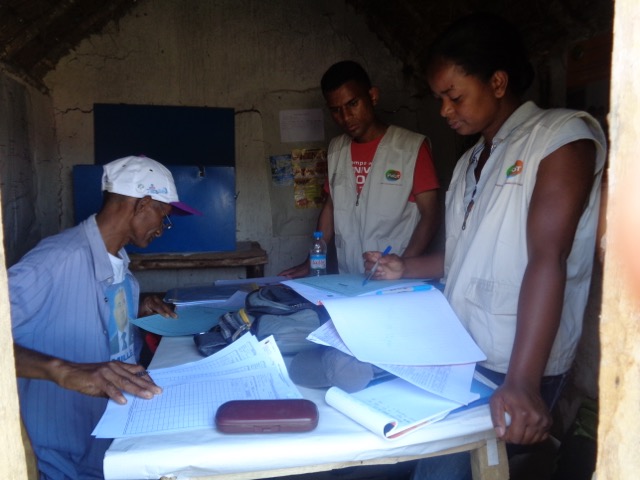
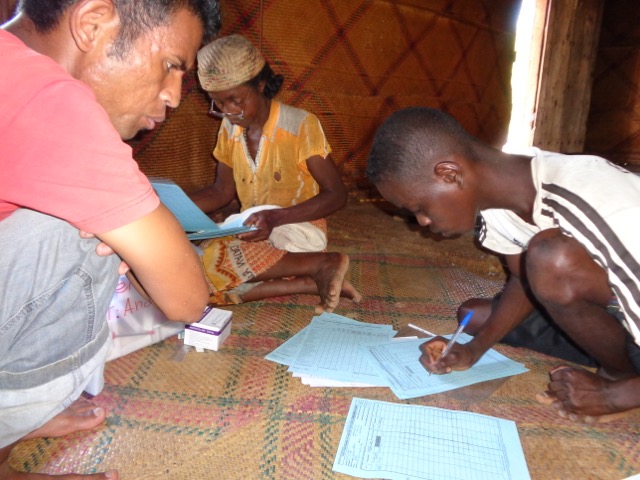
(Accompagnateur Communautaire Clinique) visit each Fokontany (village) once/month to provide on-the-ground supervision and training of CHWs. In the photos above, they review Integrated Management of Childhood Illness (IMCI)-community forms with CHWs. In the community, we are focusing on children under 5 years old. Many of these patients live very far from a health center (some > 20-30 km away), so PIVOT is striving to provide CHW training to: (1) recognize and treat some illnesses in the community; and (2) recognize and refer more serious illnesses to the health centers. There is a Madagascar National Community Health Policy that recommends CHWs, and supervision/training of these CHWs from health center staff. But health center staff are usually unable to go out to the communities due to lack of funding, time and motivation. So PIVOT ACCs are working with health centers to fill this gap.
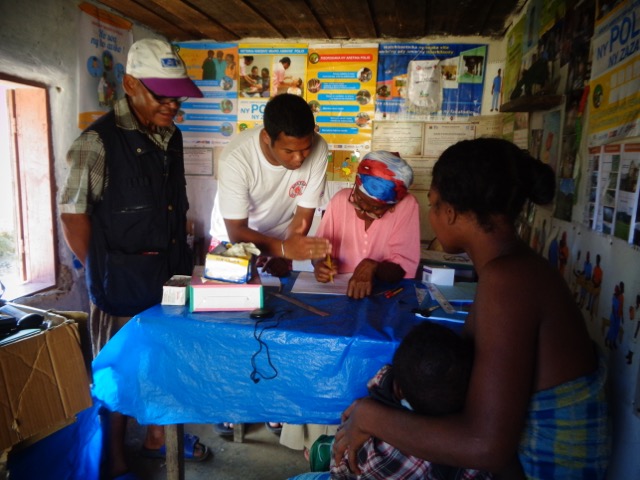
PIVOT Community Health Supervisor Marco visits CHWs in the field, providing training, supervision and patient education skills. ACCs also provide urgent medical consults when they visit the Fokontanys.
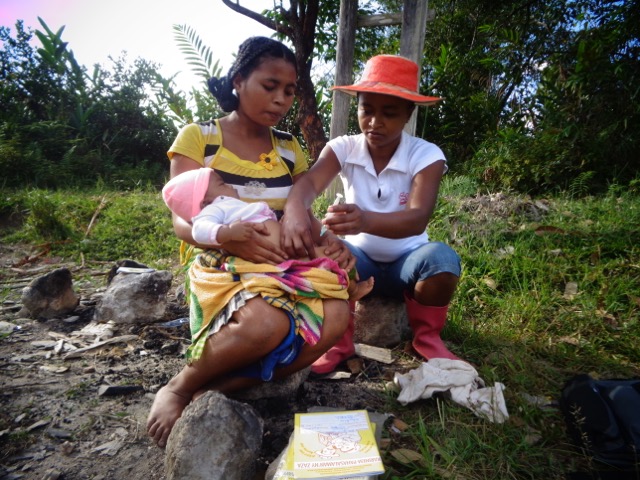
PIVOT ACC midwife Lanto gives a child a polio vaccination during one of the national polio campaigns.
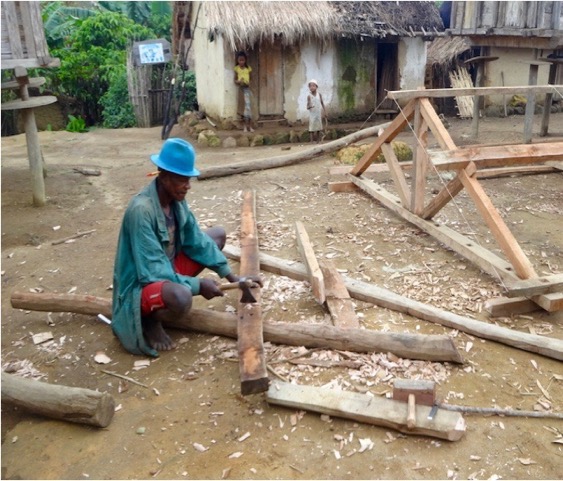
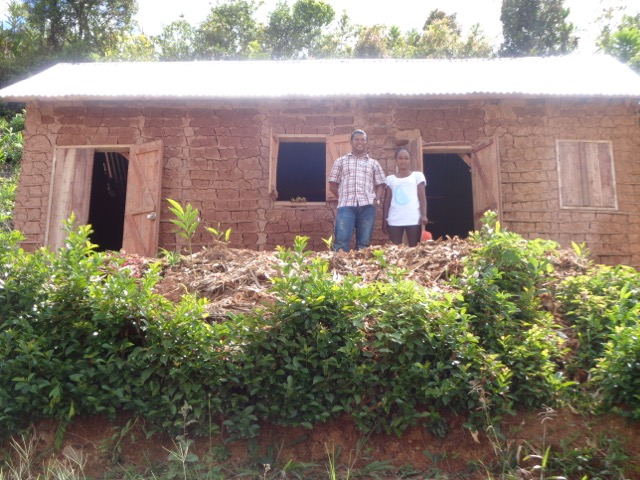
Currently, CHWs do not have a location to see patients or to store their equipment. Part of the PIVOT community health program includes helping each Fokontany to build a community health site. These sites are recommended by the Malagasy government as part of their community health program, belong to the communes, and serve as a location for CHWs to evaluate and treat patients. The communities donate local materials and their time to build, and PIVOT donates roofing materials, nails and construction recommendations. Above left, a community member works on a community site; above right are PIVOT ACCs Lanto and Marco in front of a completed community site.
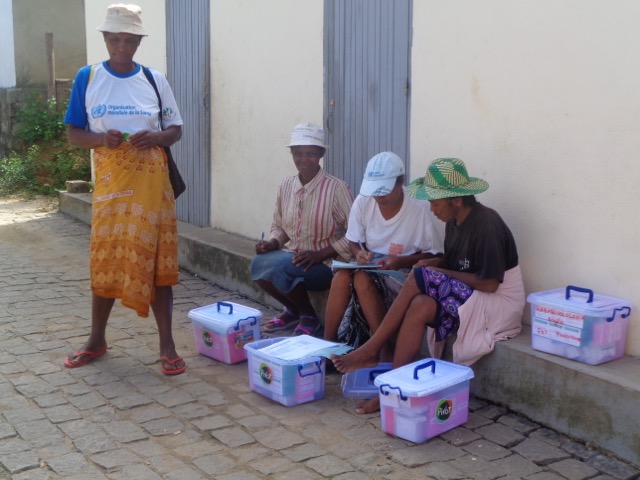
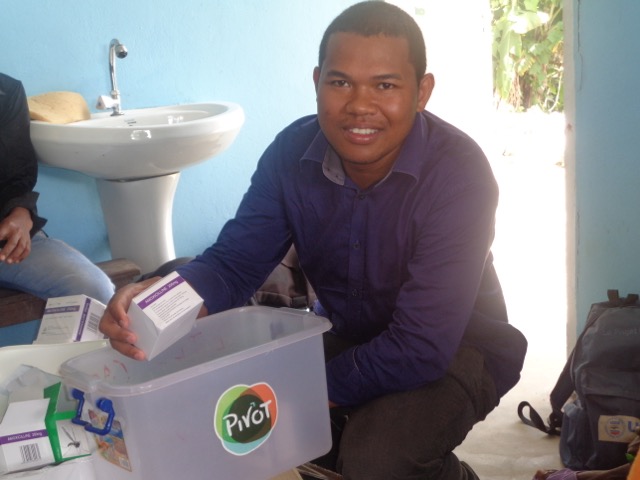
Another important part of our community programs are the distribution of “kits” of medications to CHWs. CHWs are trained in IMCI for community health care workers, i.e., basic training to identify and treat the most common causes of childhood mortality in Madagascar – malaria, diarrhea with dehydration, pneumonia and malnutrition. Previously, CHWs had to purchase medications and sell them to patients; if the CHWs did not have the money to buy the medications, or if the patients did not have the money to buy the medications, the child would not receive treatment. PIVOT donates basic medications to the CHWs each month (Amoxicillin to treat pneumonia, rapid malaria tests and malaria treatment, Oral Rehydration Salts and Zinc for diarrhea with dehydration), and the CHWs provide the medications for free to the patients.
The CHWs come to the health centers each month to turn in reports and pick up their supplies of new medications. Above right, CHWs arrive at Ranomafana Health Center to replenish their medication kits and turn in their reports for medication distribution. Above left, PIVOT Community Program Supervisor Marco checks inventories, replenishes kits and reviews medication usage guidelines with CHWs.
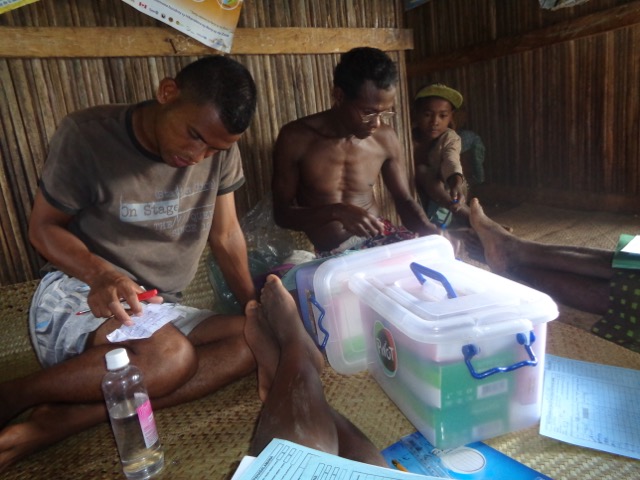
An important aspect of the community health medication kits is on-site supervision of medication use and inventory / supply management. Above, PIVOT ACC Adolphe reviews medication use with a CHW to verify that the medications are correctly administered and appropriately recorded.
Over the past 2 weeks, PIVOT also financed and organized a malnutrition training for CHWs. Over 150 CHWs and community leaders in Ranomafana, Kelilalina, Ifanadiana and Tsaratanana were trained to screen and refer patients with acute severe malnutrition. This was the community health companion training to the malnutrition training that we completed for health center staff in September. Trainers included National Ministry of Health (MoH) staff, regional MoH staff and local PIVOT and MoH staff. CHWs will now conduct mass malnutrition screenings in their communities and refer patients with severe acute malnutrition to health centers for treatment. CHWs also received training on conducting home visits for patients diagnosed with malnutrition, and patients with malnutrition lost to follow-up.
Below are several photos from the trainings.
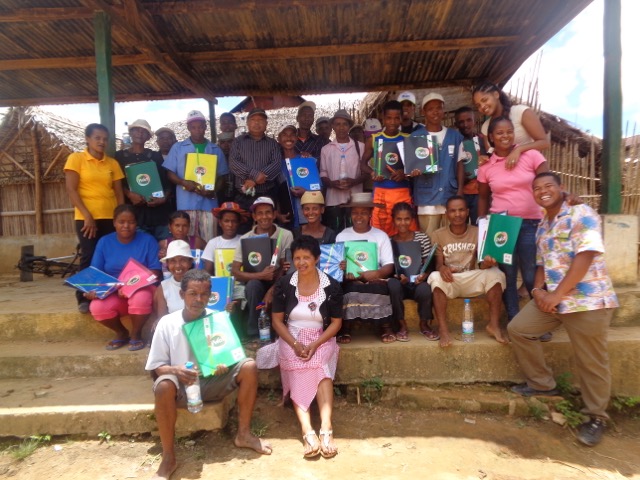
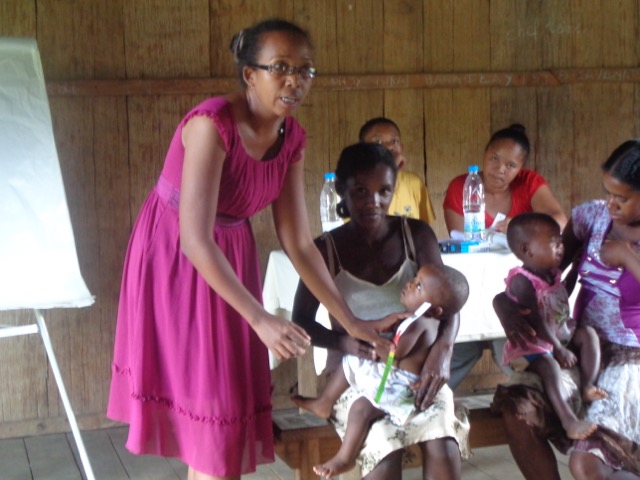
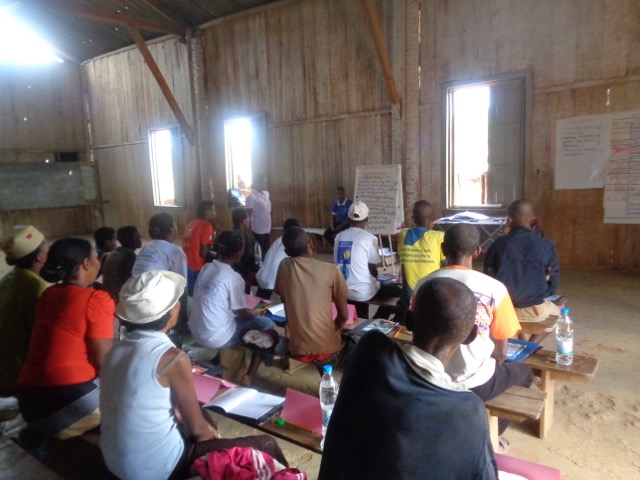
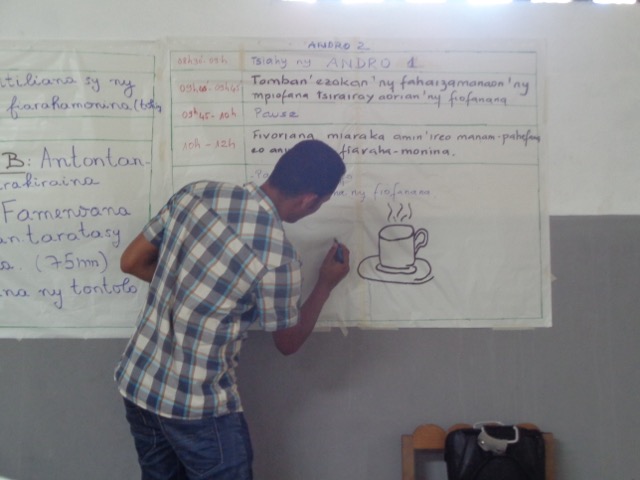
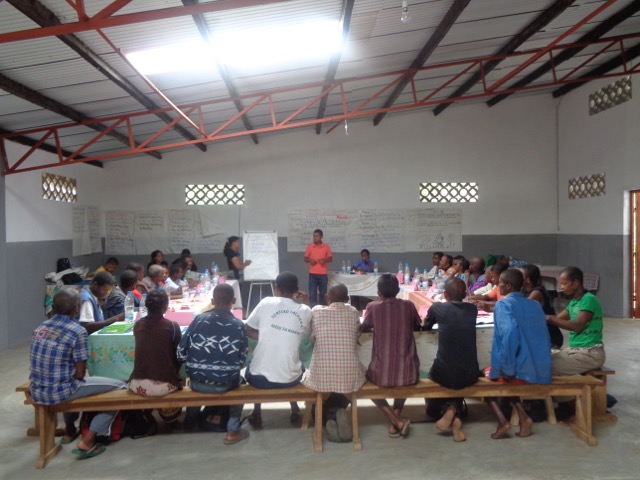

The final photo is a sample page from the patient education materials. These patient education materials were provided to all CHWs. The materials are double-sided. One side is a pictorial representation of common illnesses, good sanitation and hygiene practices to show to patients and families; the other side is an instructional guide in Malagasy for CHWs that details how to provide the patient education.
